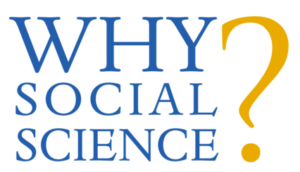Issue 22 (December 13)
FY 2023 Spending Deal in Sight?
The federal government is scheduled to run out of money unless Congress acts by Friday, December 16 when the current continuing resolution (CR) will expire. Lawmakers have been working since returning from the midterm elections to strike a deal on top-line funding levels for fiscal year (FY) 2023. However, debates over how to divvy up limited resources between defense and non-defense accounts coupled with the incoming Republican takeover in the House come January have made progress slow. Still lawmakers could announce as early as today a framework that will allow them to proceed on a large omnibus spending package and pass it before the end of the year. To accommodate this, another weeklong CR will need to be enacted through December 23.
While any progress toward completing the FY 2023 process is good news, spending details within it are still unknown. Democrats and Republicans remain billions of dollars apart on their proposals for non-defense spending, while defense is on track to receive a 10 percent increase in 2023.
COSSA will provide an in-depth analysis of the final FY 2023 bills and what it means for social science research in the weeks to come. In the meantime, you can review the current FY 2023 funding proposals on our website.
“Why Social Science” Discusses the Science Behind Elections and Polling

This week’s Why Social Science? post comes from Kathy Frankovic, former Director of Surveys at CBS News and former President of the American Association for Public Opinion Research (AAPOR), who writes about the science behind public opinion polling and its role in predicting the outcome of elections.
COSSA Seeks Undergraduate Intern for Spring 2023
COSSA is now searching for candidates for a Spring intern. This internship would be of interest to undergraduate students wishing to learn about advocacy/government relations, federal science policy, and/or non-profit organizations. We are accepting applications on a rolling basis and preference will go towards applicants who are available to work hybrid to prepare for in-person activities for 2023 Social Science Advocacy Day. If you know an undergraduate student who may be interested in a COSSA internship for Spring semester, please email Ben Goodrich ([email protected]). More information about the internship is available in the description.
Congress to Consider Standing Up Advanced Research Efforts in USDA
On December 6, the Senate Agriculture Committee held a hearing to discuss potential research related provisions that may become part of the upcoming 2023 Farm Bill – the critical agriculture bill re-authorized every five years. Under Secretary for Research, Education, and Economics (REE) at the Department of Agriculture Dr. Chavonda Jacobs-Young was a witness for the hearing. Notably, Committee Chair Debbie Stabenow (D-MI), Ranking Member John Boozman (R-AR), and several bipartisan Members of the Committee were particularly interested in discussing the possibility of appropriating funds for an Agriculture Advanced Research and Development Authority (AgARDA), a high-risk, high-reward research agency within the USDA modeled after the highly influential and popular “ARPA-style” agencies such as the Defense Advanced Research Projects Agency (DARPA). AgARDA, which was authorized in the 2018 iteration of the Farm Bill, has not yet been formally established due to lack of meaningful appropriations in Congress. Dr. Jacobs-Young remarked that there would be an implementation plan released early in 2023 on how to stand up the agency if it were to be given appropriations for fiscal year (FY) 2023. A recording of the hearing and witness testimonies are available on the Committee website.
The U.S. Global Change Research Program Releases their 2022–2031 Strategic Plan
The U.S. Global Change Research Program (USGCRP) released it’s 2022-2031 Strategic Plan on December 6. USGCRP is an interagency effort that works to identify and coordinate research activities related to global climate change and other issues across the federal government. The plan includes four pillars to guide it’s work over the next decade:
- Advancing Science: Focuses on engaging with the public and specifically calls on integrating social science into research, including studying how global change affects individual groups differently.
- Engaging the Nation: Focuses on improving assessments and improving public understanding of environmental issues, with an emphasis on climate change.
- Informing Decisions: Focuses on strategic planning and sharing to help inform policies.
- Collaborating Internationally: Focuses on sharing research with other nations, with an emphasis on providing multilingual documentation to make the research more accessible.
The full strategic plan is available here.
Federal Statistical Agencies Launch Standard Application Process for Accessing Restricted Federal Data
The National Center for Science and Engineering Statistics (NCSES) within the National Science Foundation and the Interagency Council on Statistical Policy (ICSP) have launched a Standard Application Process (SAP) to improve access to restricted federal data. As previously reported, the Foundations for Evidence-Based Policymaking Act of 2018 called for the development of a process to provide streamlined access to confidential federal data. The recently announced SAP was developed in response to this directive. The agencies released an Applicant Instruction Manual for the process and are available for questions or comments at [email protected].
The Bureau of Economic Analysis Appoints Dr. Vipin Arora as Director
The Bureau of Economic Analysis (BEA) has named Dr. Vipin Arora as their new Director, replacing Brian Moyer after he accepted the role of Director of the National Center for Health Statistics (NCHS) at the Center for Disease Control and Prevention (CDC). Dr. Arora previously has served as Deputy Assistant Director of the Social, Behavioral, and Economic Sciences Directorate at the National Science Foundation (NSF) and Deputy Director of the NSF’s National Center for Science and Engineering Statistics. Dr. Arora has a PhD in economics, a master’s degree in public administration, and a bachelor’s degree in chemistry.

